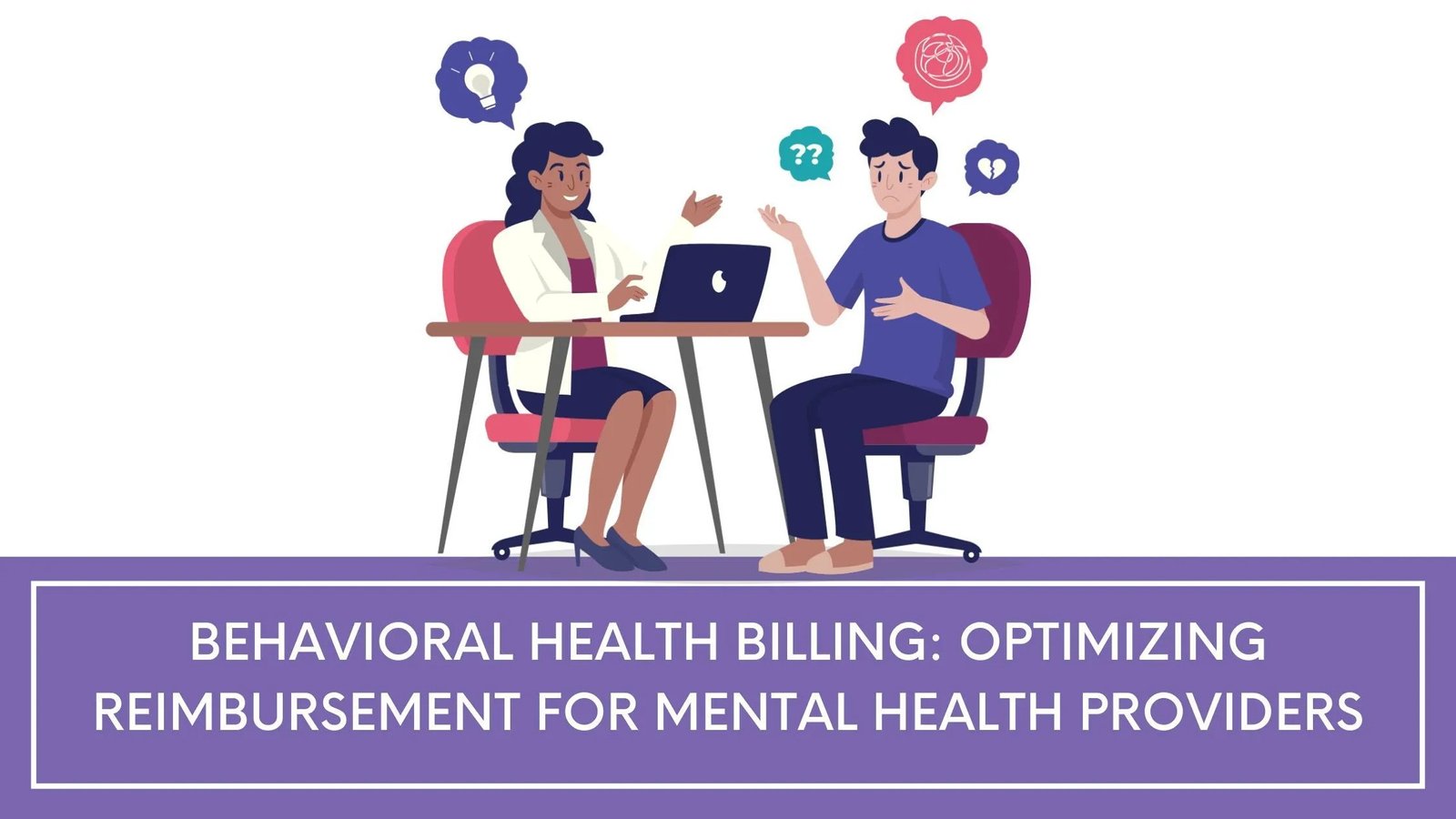Mental health conditions are prevalent, affecting millions of individuals across the globe. Fortunately, effective behavioral health services can significantly improve a patient’s quality of life. However, mental health providers often grapple with complex billing and coding processes, hindering their ability to deliver quality care efficiently. Unlike medical billing, behavioral health billing necessitates a distinct set of codes and procedures, demanding specialized knowledge and strict adherence to payer guidelines.
The Financial Impact of Inefficient Billing on Behavioral Health Services:
Behavioral health practices can suffer greatly from inefficient billing practices. For example, up to 30% of claims filed by mental health providers are initially rejected because of errors or missing data. Behavioral health practices lose between 5% and 10% of their annual revenue as a result of claim denials and delays. They also experience a significant slowdown in cash flow when manual RCM processes take up to 8 weeks to finish.
Challenges in Behavioral Health Billing:
• Unique Coding Requirements: Current Procedural Terminology (CPT) codes created especially for mental health treatments are used in behavioral health. In order to ensure accurate claim submission and maximize reimbursements, providers must stay up to date on the newest coding standards as these codes differ from those used in medical billing.
• Payer Regulations and Prior Authorizations: Pre-authorization procedures and stricter payer regulations might pose serious challenges for behavioral health professionals. In order to obtain service approval, these requirements frequently call for the submission of a thorough clinical justification. In order to avoid delays and claim denials, providers need to make sure they are aware of and follow the unique policies set forth by each payer.
• Documentation and Coding Accuracy: Correct coding and reimbursement depend on complete and accurate documentation. Behavioral health professionals must keep thorough patient records that document the type of services provided, along with the session’s date, length, and location. They also need to use the appropriate CPT codes that correspond to the particular services rendered.
• Claim Submission and Follow-Up: Sending in claims on time is essential to maximize reimbursement. To reduce the possibility of claims being denied for being filed too late, providers should submit their claims as soon as services are completed. They should also have a procedure in place for investigating rejected claims and, if required, appealing them.
• Technology and Automation: Behavioral health billing procedures can be greatly streamlined by the use of technology. Purchasing billing software can reduce errors and increase productivity by automating a number of operations, including the cleaning and filing of claims. Electronic health record (EHR) systems can also make proper recording and coding easier.
• Outsourcing Billing Services: Hiring a certified billing business to handle billing for some practices may be a more affordable option. Experts in behavioral health billing are able to maintain current knowledge of intricate coding and legal standards, which guarantees proper claim submission and maximizes payment.
Solutions to Optimize Behavioral Health Reimbursement:
• Invest in Staff Training: Behavioral health providers should invest in staff training to ensure a thorough understanding of billing codes, payer regulations, and documentation requirements.
• Establish a Coding and Billing Compliance Program: This program can assist in locating and fixing coding problems prior to the submission of claims. It can also enhance reimbursement rates and lower the number of claims that are denied.
• Make Use of Technology: Practice management and billing software may decrease errors, increase efficiency, and automate a number of billing processes. Systems for electronic health records (EHRs) can simplify the coding and documentation procedures.
• Partner with a Behavioral Health Billing Company: Outsourcing billing services to a qualified billing company can be a cost-effective solution for many practices. Behavioral health billing specialists can stay up to date on complex coding and regulatory requirements, ensuring accurate claim submission and maximizing reimbursement.
Emerging Technologies That Might Go a Long Way into Behavioral Health Billing
The delivery of mental health services is a dynamic terrain. The growing use of telehealth services is one noteworthy development. Mental health professionals can give care remotely through telehealth by utilizing secure communication technology such as video conferencing. While there are many advantages to telehealth for both patients and providers, there are particular billing difficulties as well.
Taking a closer look at a few crucial factors for behavioral health billing in the telehealth era is as follows:
• Particular Coding Requirements: Compared to conventional in-person interactions, telehealth services frequently use separate CPT codes. It is imperative for providers to remain current with the most recent telehealth billing codes and make sure they appropriately denote the services rendered virtually.
• Place of Service Codes: To differentiate telehealth visits from in-person sessions, claims must include certain place of service codes. Comprehending and utilizing appropriate place of service codes is essential to ensure precise payment.
• Payer Regulations and Coverage: There can be wide variations in payer policy when it comes to telehealth coverage. Providers need to be aware of the particular policies set forth by each payer regarding telehealth services, including any prerequisites for prior permission and restrictions on services that are covered.
• Possible Regulatory Changes: The rules governing telehealth billing are subject to ongoing change. It is important for providers to be aware of any impending changes that could impact their billing practices.
Artificial Intelligence (AI) may also have a role in behavioral health billing in the future. AI could simplify a number of steps in the billing process, including:
• Automated Claim Scrubbing: By identifying possible problems before to claim submission, AI-powered technologies can automate claim scrubbing, lowering the possibility of denials.
• Increased Coding Accuracy: AI is able to detect patterns and trends in coding methods by analyzing enormous volumes of data. This might help service providers choose the most precise codes for their offerings.
• Real-time Eligibility Verification: AI can help patients with real-time eligibility verification, which guarantees proper claim submission and lowers the risk of denials because of coverage problems.
Even though artificial intelligence (AI) in behavioral health billing is still in its infancy, there is potential for future efficiency gains and streamlining.

